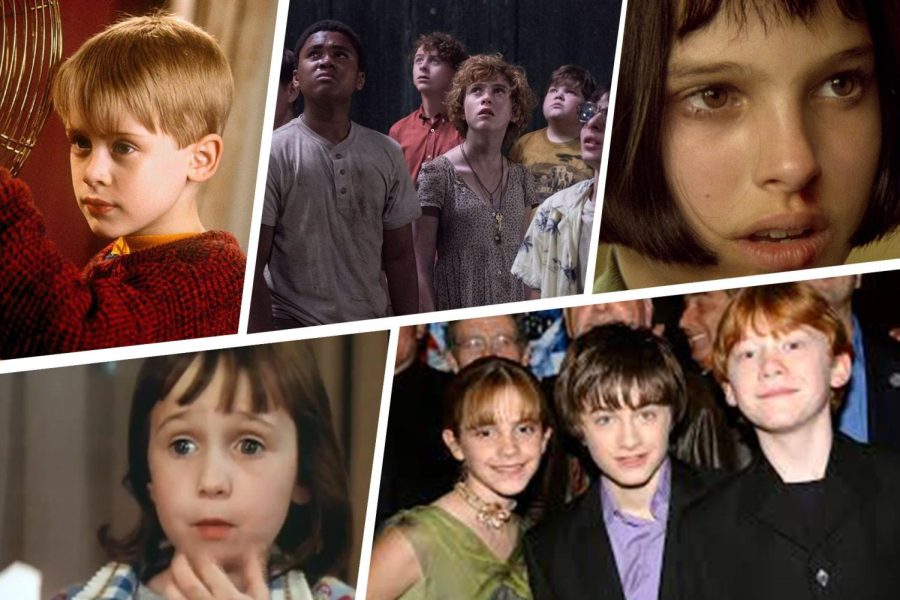Adolescents in the Entertainment Industry
February 22, 2022
The glimmering world of cinema is like a double-edged sword, promising glamour but saddling child actors with the responsibility to financially support their families and burdening them with the pressure of maintaining a professional image in front of millions of fans.
Residing under the public eye’s scrutiny at all times – already an extensive invasion of privacy – is a heavily taxing aspect of the entertainment industry. Moreover, child actors often do not have control over their own wages. This makes it easy for corrupt parents to economically exploit their children, as in the case of Misca Fortuna. Her father allegedly embezzled 100,000,000 Indonesian Rupiah of Misca’s wages as an actress, an amount equivalent to 6,975.28 USD. “Misca’s money was taken by [her father]. Even though it was savings that Misca collected during the shoot,” said Misca’s mother, Jacky Susilowati, at the Depok Police, West Java. Narratives such as Misca’s are common in the industry; unfortunately, the economic exploitation of child actors still does not garner much attention. Although acting can channel a child’s interest and aptitude, it is also a facile venue for financial exploitation by parents or guardians of these talented children.
The demands from individual family members pale in comparison to the pressures from within the industry and its fanbase. Former child stars are a considerable portion of individuals who develop mental health issues. The acting industry, in particular, can be stressful, unpredictable and lonesome, which would take a toll on anyone’s mental health. These stressors can negatively mold child stars, especially when they are young and their brains are still maturing. As youth, everyone is regularly learning and making mistakes; however, these child stars are not allotted the freedom to make any blunders and end up living under the ongoing fear of being “canceled” by millions of people or losing their source of income along with future career prospects.
The latest demands from social media exemplify this fear. Like their adult counterparts, child stars are expected to constantly generate content and are relentlessly inundated with both praise and criticism from the media, blogs and anonymous strangers. Although social media platforms make it significantly easier to communicate with child actors, there is no consensus on how to discuss children in the spotlight. Fans and fellow stars alike have subjected child actors like Millie Bobby Brown and Finn Wolfhard to sexualization online. Model Ali Michael, for example, posted an Instagram story inviting Wolfhard to “hit her up in 4 years,” when he would be 18. Right now, there is virtually no way to protect these adolescents from the media or their obsessive fanbases.
The ordinary occurrence of familial exploitation and its horrific circumstances can be glimpsed in the lives of world-famous YouTubers. This brings forth the ethical issue regarding family vlogging with children, as many family vloggers exploit their kids for views. In an appalling 2019 case, Machelle Hobson, a mom on a popular Youtube show, was arrested for molestation, child abuse, child negligence and unlawful imprisonment. Police state the children were starved, pepper-sprayed and otherwise punished when they did not memorize the script or want to partake in the videos, according to the probable cause statement. The alleged abuse transpired while Hobson forced them to perform in videos for her lucrative YouTube channel “Fantastic Adventures.” The channel accumulated 800,000 subscribers and millions of views. Though an extreme case, adolescents featured on other YouTube channels are similarly unable to consent to be filmed and exposed to their viewers at all times. Upon speaking with an assortment of child vloggers, physiatrist Dr. Ryan concludes, “At the end of the day, they [child vloggers] were in a very dark place for a long time. And that really struck me, childhood is priceless, and certain memories don’t have a price tag on it, and it can really affect your mental health down the line.” He continues to speak about how these children cannot break away from their adolescence after growing up. They already have a digital footprint curated, and they are unable to escape these preassigned labels.
The hardships accompanying being a child star are relevant to all because we potentially perpetuate these cycles of mistreatment in the industry by consuming the media and content they push out. Undoubtedly, banning children from acting – or social media – is no solution, as it would make it unattainable for kids to gain exposure and accumulate an income, not to mention it would rule out conveying stories that involve children at all. However, as the general populace, it is essential to comprehend what goes on behind sealed doors. It is crucial that we amplify the voices of the voiceless. Utilizing social media, we can broadcast the names of child abusers and the perils these children encounter. We can strive for laws that shelter children. We can protest and demand that our country keeps its youth safe. With all of the aforementioned dangers, it is essential for the public to make subsequent efforts to ensure our future generations remain unharmed and thrive in a world where they are permitted to enjoy their childhood without constant dread looming over them.




